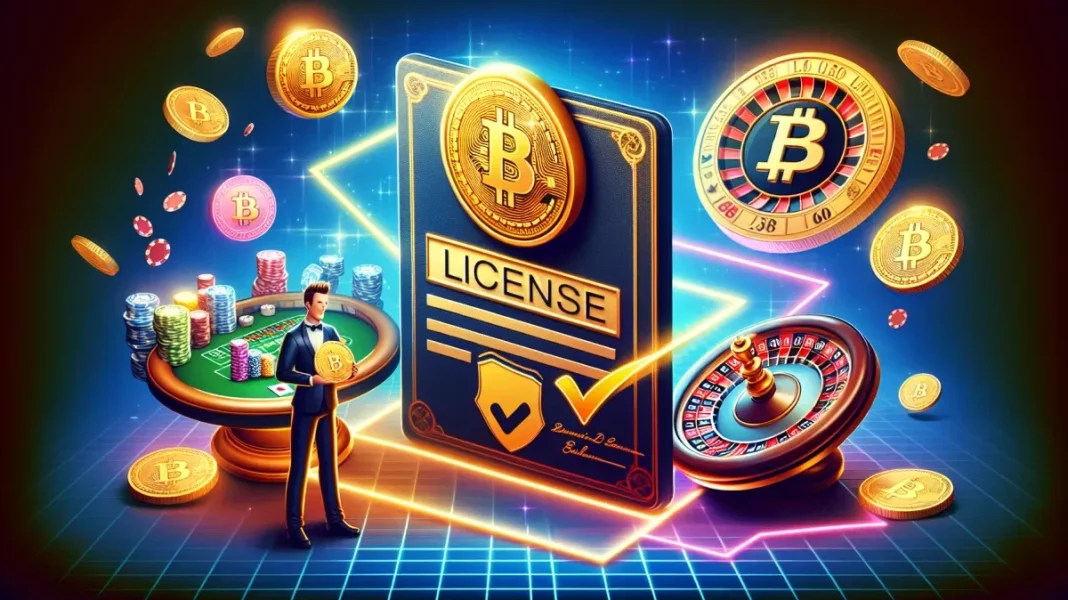Bitcoin has taken the world by storm and has transformed the landscape of online transactions. One area that has been particularly transformed is online gambling. This industry has embraced the potentiality of this digital currency and is now reaping immense benefits. Bitcoin casinos are mushrooming across the world, taking advantage of the cryptocurrency’s anonymity, convenience, and speed of transactions. However, while the growth is commendable, it has raised pertinent issues about the legitimacy of Bitcoin gambling operations. In today’s piece, we delve into the role that licenses play in legitimizing these operations.
Importance of Licensing in Online Gambling
Online gambling is not new to the world. Long before Bitcoin graced our digital space, online casinos were already operational. Just like their brick-and-mortar counterparts, online casinos have to obtain a license to operate. This is the basis of their existence.
The primary aim of licensing is to ensure that the gambling operations are undertaken legally and ethically. A casino holding a valid license means it’s recognized by a regulatory body and it’s compliant with all the relevant rules and regulations set by the authority. In essence, the licenses offer a form of regulation and protection for the players.
In the world of Bitcoin gambling, the role of licensing is no different. A Bitcoin casino that possesses a valid license is deemed legal, credible, and safe for players to use.
Challenge of Unregulated Bitcoin Gambling Operations
The global nature of Bitcoin operations makes regulation a daunting task. Bitcoin is decentralized, meaning it is not under the control of a specific government or central authority. This has made it difficult to regulate Bitcoin gambling operations, especially where the concept of cryptocurrencies is still alien.
This regulatory gap has paved the way for the sprouting of unregulated Bitcoin casinos. Such operations pose a risk to the players as they may be used for facilitating illegal activities, including money laundering. They are also likely to compromise the security of the users, exposing them to attacks from hackers.
Licenses come in handy to solve this problem. They help in defining the legal framework within which Bitcoin casinos operate. A licensed Bitcoin casino will be subject to regular audits, ensuring transparency and fairness in its operations. This creates a sense of trust and confidence among the players, consequently legitimizing the operations of the Bitcoin casino.
Process of Acquiring a Gambling License
To boost their credibility, Bitcoin casinos have to acquire licenses from reliable and recognized bodies. However, the process is not an easy one. Authentic licensing bodies have rigorous procedures in place.
Depending on the jurisdiction of operations, a Bitcoin casino may be required to provide evidence of sound business structures, prove the identity and credentials of the owners, show proof of financial stability, and demonstrate an understanding of player safety measures. They are also required to have policies in place to guard against money laundering and other illegal activities.
Such a thorough vetting process ensures that only legitimate businesses which uphold high standards are granted licenses. It is a testament to players that a licensed Bitcoin casino is safe, trustworthy, and fair.
Enhancing Social Responsibility through Licenses
Beyond just legitimizing Bitcoin gambling operations, licenses also foster a sense of social responsibility. They ensure Bitcoin casinos incorporate responsible gambling practices in their operations. These may include features that allow players to set self-limits on their gambling activities, options for self-exclusion, and links to help organizations for problem gambling.
In conclusion, while Bitcoin in itself symbolizes freedom and independence from traditional financial systems, the existence of a governing body in Bitcoin gambling operations is crucial. Licences thus play an indispensable role in legitimizing Bitcoin casinos, safeguarding users’ interests, and engendering trust in the blossoming Bitcoin gambling industry.
Sources:
1. UK Gambling Commission – https://www.gamblingcommission.gov.uk/home.aspx
2. Malta Gaming Authority – https://www.mga.org.mt/
3. Isle of Man Gambling Supervision Commission – https://www.gov.im/gambling/



